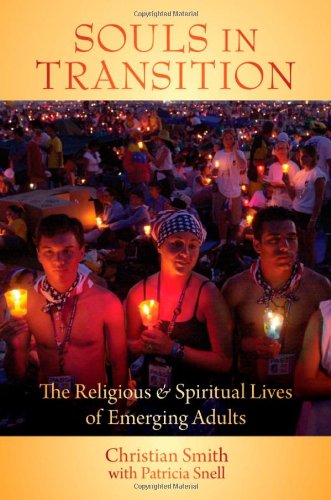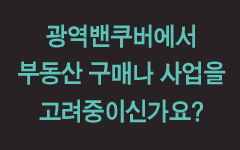늘봄님께서 새로운 자료를 올려 주셔서 감사합니다. 종교에 관심없는 분들은 이 도배에 양해 부탁드립니다. 그냥 사회현상 중 하나를 이해하려는 노력으로 받아 주시면 감사하겠습니다.
1. 세계기독교 차원에서 말씀드립니다. 지난 번에는 위키피디아 자료인테 이번에는 또다른 자료입니다. 이런 자료들은 통계전문가 의견이 필요하겠지만 제가 찾은 자료로서는 기독교가 가장 빠르게 증가하는 종교가 될 것이라는 예측입니다.
http://fastestgrowingreligion.com/numbers.html
2050년까지 프로젝트 된 내용을 보면, 여전히 기독교가 세계에서 가장 큰 종교가 되고, 성장률이 가장 높은 세계종교는 이슬람이 될 것입니다. 두 종교 모두 유신론이 중심적 교리를 갖추고 있습니다.
In the period 2000-2050, in terms of absolute numbers, Christianity is predicted to be the fastest growing religion (1,052 billion more adherents). Closely followed by Islam (+1.041 billion) – though the difference between the two numbers is so small that any difference easily lies within the statistical uncertainty.
• Since Islam from the base point in 2000 is a smaller overall religion than Christianity (about 60% the size of Christianity) the same (roughly) growth in absolute number of adherents translate into a larger relative growth. Respectively 87.61% versus 52.61% in relation to the initial size of the religion & 5.4% versus 1.3% as a proportion of the religions size compared to the global human population.
2. 늘봄님께서 퍼오신.huffingtonpost의 기사에 대한 것입니다. 이것은 일반적 종교적 추세에 대한 것이지 각 교파에 대한 것은 아닙니다. 아래서 더 자세히 논의하겠지만, 그 양극화에서 종교조직의 측면에서 진보교회는 소멸되고 보수교회의 목소리가 더 크질 것입니다.
A new study has found that while the number of religious conservatives is still greater than that of progressives, the religious left may have a better chance of maintaining its foothold with Americans over time.
"If you’re using a generational snapshot today as a proxy for the future, it is is safe to say that religious progressives hold a stronger appeal among Millennials," said Robert Jones, CEO of Public Religion Research Institute, which surveyed 2,000 adults in partnership with the Brookings Institute.
위의 내용으로 보면, 정치적으로 진보적인 사람들에게는 좋은 소식임에는 틀림없습니다. 그런데 퍼오신 글의 마지막 평가의 글에 보면, 진보교회엔 좋은 소식은 아닌 듯합니다.
"If you want to turn to the question of like what does this mean about a progressive religious movement, you clearly have to think about some caveats," Jones said. "It becomes a very complicated heterogenous group of people to communicate with and organize with."
진보적 종교조직으로 발전되거나 유지된다는 보장은 없다는 것입니다. 이런 경고는 다른 곳에서도 나옵니다.
http://spectator.org/articles/55171/future-belongs-religious-liberals
America is becoming more religiously liberal with each generation, and religious conservatives, though more numerous now, will become dinosaurs. That’s the confident projection of a new poll from the liberal leaning Public Religion Research Institute. It's predictably gotten good media play, as claims about irrelevance for religious conservatives often do. And it supplements other polls supposedly proving the rise of the religiously unaffiliated in America.
위의 글을 제가 잘못 이해했는지는 몰라도, 진보적인 쪽의 미디어 플레이라는 것이죠.
But this new poll gives hope that demography eventually will eradicate the dreaded Religious Right.
Their hopes will likely be disappointed. Many Millennials will become more religious and conservative as they age, especially if they marry and have children. And the subsequent generation almost certainly will rebel against their predecessor's hipster outlook, just as diligent Generation Xers reacted against the soaring hippy activism of their Baby Boomer predecessors. Religious conservatives also have more children than religious liberals or secularists.
이 여론 조사를 보면, 마치 종교적인 우파를 제거할 것이라고 본다지만, 결국 실망으로 끝날 것이라는 분석입니다.
There is also the institutional collapse of organized liberal religion. All liberal-controlled denominations are suffering massive membership loss. Fifty years ago, one in six Americans belonged to the largest seven liberal Mainline Protestant denominations. Today it is one in 16. All growing denominations are theologically conservative, as are most thriving non-denominational congregations. Almost all the largest seminaries today are conservative. Among Catholics, young priests are decidedly more conservative than retired priests. Urban churches that attract the much vaunted Millennials are typically evangelical, not liberal.
또다른 문제는 제도적인 종교 또는 교회의 붕괴입니다. 모든 진보적인 교파는 대량의 회원 상실을 경험하고 있는 중입니다. 50년 전에 미국인의 6명의 1명은 진보적인 교회에 속했는데 이제는 16명 중의 1명입니다. 모든 성장중의 교파는 보수적인 교회입니다. 가장 큰 신학교들은 보수적이며, 교파에 속하지 않은 보수 교회들이 모두 성장합니다. 앞으로 신생 교파로 성장할 겁니다. 가톨릭을 보면, 젊은 신부들은 은퇴한 신부들보다 더 보수적입니다. 도시교회에서 신세대들을 끄는 것은 진보적인 교회가 아니라 보수적인 교회입니다.
그러면 늘봄님께서 주장하시는 젊은 세대란 바로 전통적인 교회를 등진 진보적인 자녀들일 겁니다.
Liberal religion is usually a reaction against trans-generational orthodoxy, not a sustaining alternative to it. In contrast, religious orthodoxy is not a guarantee of vibrancy and growth but it almost always is a prerequisite.
이 글에서 중요한 점은 바로 이것입니다. 진보교회는 세대간의 반응이지 그 이상의 대안이 되지 못한다는 것입니다. 전통적인 종교 신념이 활력과 성장의 보증은 아니지만, 이러한 신념은 이러한 활력과 성장을 위한 거의 항상 필수적인 전제 조건이라는 것입니다.
이런바 자유주의자나 세속주의자들이 못보는 것은 다음과 같은 내용입니다.
The next generation of religious conservatives may speak differently from yesterday's Religious Right. But they will still be conservative and likely much more numerous than liberal counterparts. The Left often expects abstract tides of history to ensure its final victory. But religious liberals, who almost always dilute the doctrines of their faith to replace or supplement them with secular fads, usually ensure their own demise.
보수교회는 죽은 화석이 아니라 다른 조직과 마찬가지로 살아있는 생물이라는 것입니다.여기에서, 보다 더 종교적인 보수의 다음 세대들은 현존의 보수세대와 다른 입장을 갖는다는 것이죠. 제가 예측컨대, 동성애 문제는 보수교회에서 핫 이슈가 곧 안될 겁니다. 캐나다의 보수 교회를 보세요. 가령, 요즘 보수교회에서도 동성애에 대한 젊은 기독교인들의 입장은 상당히 열려 있습니다. 전통적인 교리를 제대로 발전시키지 못하고 희석화시키는 결국 자체로 소멸을 고한다는 겁니다. 늘봄님이 간과하시는 것은 보수와 진보의 이분법이 고정된 것이 아니라는 겁니다. 옛날에 보수교회에서 여성의 성직을 인정하지 않았지만 요즘은 거의 인정해 가는 추세입니다. 그렇다고 전통적인 기독교 패러다임의 폐기는 아닙니다.
음울한 소식이지만, 스퐁이 속한 에피스코팔 교회는 계속 쇠퇴하고 있습니다.
The Episcopal Church continues to decline both in baptized members and average weekly worship attendance, according to recently released statistics for 2012.

결국은 자폭인 셈입니다. 가치 평가를 좀 하면 그렇다는 말입니다.
세째, 그런데, 이 진보적인 기관이 간과한 것은 무엇일까요? 그것은 교회 지형의 변화입니다. 하버드 대학교의 정치학자들인 Robert Putnam과 David Putnam 2010년에 출판한 [American Grace: How Religion Divides and Unites Us]라는 책에서 다음과 같이 적고 있습니다.

"Perhaps the most noticeable shift is how Americans have become polarized along religious lines. Americans are increasingly concentrated at opposite ends of the religious spectrum--the highly religious at one pole, and the avowedly secular at the other. The moderate religious middle is shrinking.
이 통계적 결과는 지난 20세기 후반에 대한 것이지만, 여기서 말하는 moderate는 이른바 진보적인 교회입니다. 이 교회가 바로 줄어든다는 것이죠.
마지막으로, 늘봄님이 계속 간과하시는 점은 보수교회는 영원히 보수교회로 남고, 진보교회는 영원히 진보교회로 남는다는 생각입니다. 그런데 위에서 잘 지적해 주듯이, 종교는 돌고 돈다는 것입니다. 종교는 보수적인 종파운동 또는 신종교운동으로 나왔다가, 크지면 사회적 존경을 원하기 때문에 교회형으로 바뀐다는 것입니다. 이것은 막스 베버와 언스트 트뢸취가 발전시킨 church-sect 이론으로서 이 이론에 대한 부차적인 의견차이는 있을지 모르지만 거의 모든 종교사회학자들이 의견의 일치를 이룬 것입니다. 한 때 보수적인 교회가 나중에 진보적인 교회로 바뀌고, 이런 진보적인 교회가 생명을 다하는 사이에 다른 신생 종파가 나와서 이런 진보적인 교회를 대체합니다. 작년에 모 진보교단에서 앞으로 2050년에 무슨 일이 일어날 까 하는 교단 자체내의 내부 진단 프로젝트였는데, 교회는 하나도 없고, 교역자도 0(zero)로남는다는 것이었습니다. 긴 침묵... 이것이 바로 진보교회의 현실입니다.
저는 이런 진보교회와 보수교회와 쌈을 하자는 것이 아닙니다. 지금의 한국 보수교회는 나중에 진보교회로 발전할 가능성이 많습니다. 지금은 늘봄님이 이단취급당하시겠지만, 50년 후에는 바뀔 수도 있습니다. 한 때 보수 선교사들의 산실인 연세대와 이화여대가 세속대학이 되었으며, 그 쪽 신학과와 기독교학과 교수들은 거의 모두 진보적인 신학자들입니다. 제가 관심을 갖는 것은 이런 종교적 변화가 언제 어떻게 왜 무엇 때문에 일어나는가 하는 것이죠. 전에도 여기서 언급했지만, 세계에서 가장 무서운 조직이 가톨릭 조직이라고 하였습니다. 가톨릭은 그동안 진보와 보수를 모두 흡수 했습니다. 그런데 가톨릭 성장의 동력은 바로 전통적인 신학아래 진보적인 이념이나 문화적 다양성을 포용해 왔다는 것이죠. 그렇다고 다 허용한 것은 아니고 궁극적으로 조직에 도움이 되는 것은 받아들이고 그렇지 않으면 가차없었죠. 이 가톨릭 교회가 바로 늘봄님이 비판하시는 지난 2000년의 가장 오래된 결과물입니다.
가톨릭을 이야기하면 제 진위가 샐 것같아서 다시 반복합니다. 종교 조직은 교회형과 종파형의 싸이클로 돕니다. 그런데 최근 사회학자들은 교회-종파-신종교형으로 나뉘기도 합니다. 그러나 종교조직의 발전과 퇴보의 측면에서 볼 때, 교회-종파형으로 충분하다는 주장입니다. 앞에서 제가 에피스코팔 교회의 쇠락을 음울하다고 했는데, 사실은 그렇게 여길 필요가 없습니다. 나중에 보수적인 교회가 에피스코팔 교회로 바뀔 가능성이 많으니까요.
마지막으로, 그러면 진보교회의 역할은 무엇일까요? 그 답은 종교사회학자 Christian Smith의 [Souls in Transition](2009)에 있습니다. 제가 이런 통계학적 자료를 추적하고 관심을 갖는 것은 왜 진보적인 교회는 쇠퇴하는가였습니다. 이 책에서 여기에 대한 약간의 답을 찾았습니다.

The Cultural Triumph of Liberal Protestantism
It is old news by now that mainline-liberal Protestant denominations in the United States are suffering major declines in membership and social prestige. Sociologists have for decades been documenting a hemorrhaging of members from mainline Protestant churches...What was once mainline is now regularly dubbed the “sideline” and the “old-line.” These are not the glory days of mainline-liberal Protestantism in America. Yet many observers are so focused on membership statistics and apparent political influences that they miss an important fact: that liberal Protestantism’s organizational decline has been accompanied by and is in part arguably the consequence of the fact that liberal Protestantism has won a decisive, larger cultural victory.
스미쓰에 따르면, 주류교회가 이제 쇠퇴하여 sideline 또는 old-line으로 되어 버렸지만, 사회나 문화적 이슈와 관련해서는 결정적으로, 그것도 크게 승리했다는 것입니다. 캐나다에서 동성결혼 법제화에 결정적 역할을 한 캐나다 연합교회도 그런 역할에 속합니다.
...What Demerath means by this is that liberal Protestantism’s core values—individualism, pluralism, emancipation, tolerance, free critical inquiry, and the authority of human experience—have come to so permeate broader American culture that its own churches as organizations have difficulty surviving. One reason for this development is that these very liberal values have a tendency to undermine organizational vitality. The strongest organizations are generally not built on individualism, diversity, autonomy, and criticism. Furthermore, having won the larger battle to shape mainstream culture, it becomes difficult to sustain a strong rationale for maintaining distinctively liberal church organizations to continue to promote those now omnipresent values. Liberal Protestantism increasingly seems redundant to the taken-for-granted mainstream that it has helped to create.
여기서 스미쓰가 Demerath라는 학자의 말을 빌려 주장하는 바는 진보적인 개신교의 핵심적인 가치는 미국사회가 지향하는 보편적인 가치와 거의 같아서 일반사회와 구별되는 종교조직을 유지하기 힘들 것이라는 겁니다. 이러한 주류문화적 가치를 얻기 위해 자기조직은 결국 희생된다는 것이죠. 진보교회의 장렬한 전사입니다. 어쩌면 이것은 예수정신입니다. 그러한 전사자들은 보수교회에서 다시 부활할 겁니다. 그래서 다시 장렬한 전사자의 대열로 전이하는 것이죠.
종교가 종교적 독특성 또는 자기 조직의 정체성을 잃으면 유지되기 힘들다는 것은 상식적인 것입니다. 그래서 결국 진보적인 교회는 일반 세속적 사회적 문화적 가치와의 구별이 없어지니 독특성을 잃어 쇠퇴하며, 보수교회가 종교적 힘을 갖게 되며, 이것도 시간이 지나면 결국 진보교회가 되고 쇠퇴하고 다른 신생교회로 대체됩니다. 그런 대체가 기존 기독교가 될지, 또는 몰몬교회가 될지 또는 이슬람이 될지는 아무도 알지 못합니다.
바로 윗부분은 진보교회에 대한 위로의 말이지만, 아무종교에 속하지 않은 사람들의 증가는 바로 진보적 교회의 쇠퇴의 결과물이라는 것이죠. 미국에서 기독교의 쇠퇴는 그동안 주류를 형성한 교회들의 쇠퇴를 의미합니다. no religious affiliation의 증가는 바로 진보교회의 쇠퇴와 상관관계가 있는 것이지 보수교회와의 상관은 아닙니다.
제가 계속 주장했듯이 종교의 증감은 진리의 가치와 상관이 없이 사회적 관계를 통한 결과물입니다.







